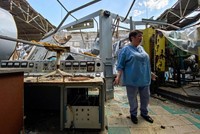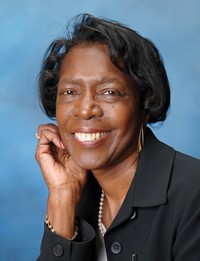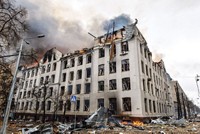Advertisement
Grab your lab coat. Let's get started
Welcome!
Welcome!
Create an account below to get 6 C&EN articles per month, receive newsletters and more - all free.
It seems this is your first time logging in online. Please enter the following information to continue.
As an ACS member you automatically get access to this site. All we need is few more details to create your reading experience.
Not you? Sign in with a different account.
Not you? Sign in with a different account.
ERROR 1
ERROR 1
ERROR 2
ERROR 2
ERROR 2
ERROR 2
ERROR 2
Password and Confirm password must match.
If you have an ACS member number, please enter it here so we can link this account to your membership. (optional)
ERROR 2
ACS values your privacy. By submitting your information, you are gaining access to C&EN and subscribing to our weekly newsletter. We use the information you provide to make your reading experience better, and we will never sell your data to third party members.
Policy
We don’t need a war
by Bibiana Campos-Seijo
March 6, 2022
| A version of this story appeared in
Volume 100, Issue 9
On Feb. 24, Russian troops launched an attack on Ukraine. In the days since, Russian forces have struck the 44-million-strong democratic country by air, land, and sea, prompting an exodus of refugees.
According to the BBC, more than 1 million people have now fled Ukraine since the invasion began and are crossing to neighboring countries such as Poland, Romania, and Slovakia. To avert some of the long-term effects of what is quickly becoming a humanitarian crisis, the European Union is preparing to grant war-displaced Ukrainians a blanket right to remain for up to 3 years in any of the countries that form the EU, the BBC says.
Russian troops also occupied the Chernobyl nuclear plant, which was the site of a major explosion in 1986 that devastated the surrounding area. This news is terrifying, to say the least, and would put any government on high alert. The situation raised additional concern, though, when the Ukrainian government confirmed that radiation monitors in the areas around the plant registered a spike in their readings.
Fortunately, the readings returned to normal soon after, suggesting that the spike was a result of the troops disturbing contaminated dust rather than leaks or damage to the facilities. Experts confirmed to C&EN reporters that the occupation is not causing immediate danger from radiation spreading. What the occupation of the plant means, however, is that Russian troops are safely stationed in Ukrainian territory in a location that is unlikely to be attacked.
Economic and other sanctions from global leaders and organizations have been imposed since the beginning of the conflict, most with the goal of disassociating from Russia and forcing the country to withdraw (see page 13). These sanctions and the breaking of ties have spilled over into the scientific realm and are likely to have a significant impact on collaboration and exchange with the aggressor (see page 8).
When it comes to scientific communication, publishers have typically shown support for the scientific community, regardless of where scientists are located or their nationality, citing values of scientific openness and global cooperation. But with calls by some for a complete boycott of the Russian scientific community, is this position likely to change? So far, Elsevier has confirmed in an email to editors that it will continue to handle submissions to its journals from authors with Russian affiliations.
But publishing research may become harder as other organizations conducting or funding scientific research are at least pausing, and in some cases ceasing, collaborations with their Russian counterparts. One example of this is the German government’s directive to its universities to “freeze academic relations and in particular scientific projects with Russia.” The Danish government gave similar guidance, ordering the country’s educational institutions to stop all “educational, research and innovation cooperation with institutions in Russia and Belarus,” according to a news release.
When it comes to science and the well-being of scientists in Ukraine, the scientific community has offered an outpouring of concern and made offers of support. The Science for Ukraine website is collecting the many generous offers for funding, lab space, and accommodation for displaced Ukrainian scientists. The American Chemical Society is waiving dues for Ukrainian members as an immediate action.
I sincerely hope that the military conflict does not spread and cause more death and destruction. The world does not need a war on top of the devastating COVID-19 pandemic. We don’t need any more lives lost. Our thoughts are with the people of Ukraine.
Views expressed on this page are those of the author and not necessarily those of ACS.





Join the conversation
Contact the reporter
Submit a Letter to the Editor for publication
Engage with us on Twitter